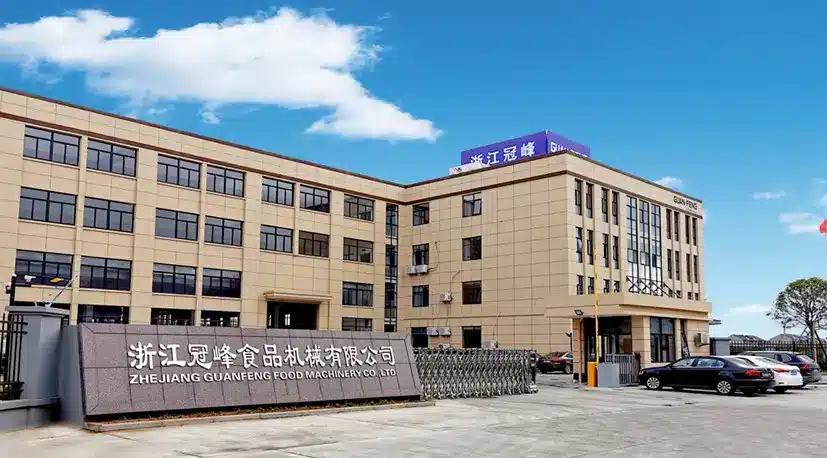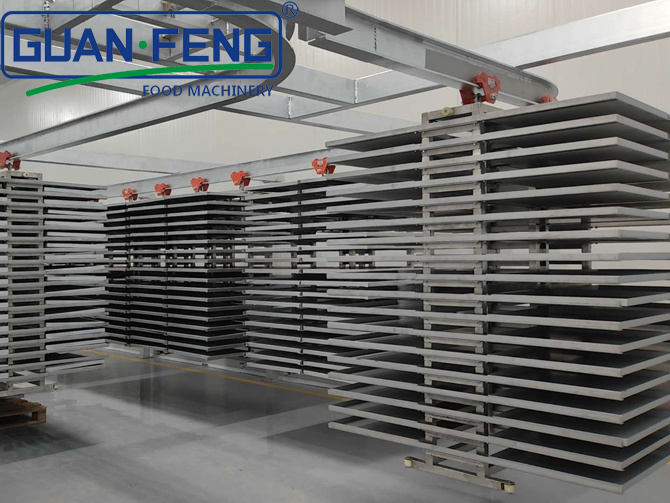BLOG
Focus on hot topics, real-time dynamics
Why Your Lab Needs a Lyophilizer Machine: Essential Insights
Why Your Lab Needs a Lyophilizer Machine: Essential Insights
Table of Contents
1. Understanding Lyophilization: The Science Behind Freeze-Drying
2. Benefits of Using a Lyophilizer in Your Laboratory
3. Applications of Lyophilizers in Life Sciences
3.1 Pharmaceutical Industry
3.2 Biotechnology
3.3 Food Preservation
4. Key Features to Look for in a Lyophilizer
5. Cost-Effectiveness of Investing in a Lyophilizer
6. Common Misconceptions About Lyophilizers
7. Selecting the Right Lyophilizer for Your Lab
8. FAQs About Lyophilizers
9. Conclusion: Elevate Your Lab’s Performance with a Lyophilizer
1. Understanding Lyophilization: The Science Behind Freeze-Drying
Lyophilization, commonly known as freeze-drying, is a sophisticated process that removes moisture from a material while preserving its structure and composition. This technique is particularly important in industries that handle sensitive biological materials, such as pharmaceuticals and food sciences. The process involves freezing the product and then reducing the surrounding pressure to allow the frozen water to sublimate directly from solid to gas. The end result is a stable product that can be easily reconstituted when needed.
2. Benefits of Using a Lyophilizer in Your Laboratory
The incorporation of a lyophilizer can significantly enhance laboratory workflows and outcomes. Here are some of the key benefits:
Preservation of Biological Materials
One of the primary advantages of a lyophilizer is its ability to preserve biological materials. By removing water, lyophilization prevents the growth of microorganisms and extends the shelf life of samples without altering their chemical structure.
Enhanced Stability and Storage
Lyophilized samples are more stable than their liquid counterparts. This stability allows for easier long-term storage and transportation. Less moisture means a lower risk of degradation, making lyophilization an ideal choice for sensitive compounds.
Convenience in Reconstitution
Reconstituting lyophilized samples is straightforward. When needed, the samples can be quickly rehydrated with minimal loss of quality, which is essential in research and clinical applications.
Reduced Shipping Costs
Lyophilized products are lighter and take up less space than their liquid forms, leading to lower shipping costs. This is particularly beneficial for laboratories sending samples to collaborators or commercial partners.
3. Applications of Lyophilizers in Life Sciences
Lyophilizers have a wide array of applications across various sectors within the life sciences. Understanding these applications can help labs leverage their benefits effectively.
3.1 Pharmaceutical Industry
In the pharmaceutical industry, lyophilizers are crucial for the production of stable drugs, especially those that are biologically active. Lyophilized vaccines, for instance, maintain efficacy during storage and transport, ensuring public health measures can be implemented without delays.
3.2 Biotechnology
Biotechnology relies heavily on the preservation of enzymes, proteins, and nucleic acids. Lyophilization provides an effective means to stabilize these biological materials for research and development, ensuring that they remain functional for experiments.
3.3 Food Preservation
Lyophilization has gained popularity in the food industry for preserving fruits, vegetables, and meals. This technique not only retains nutritional value but also enhances the flavor profile of the foods, making them an attractive option for consumers seeking healthy, convenient meals.
4. Key Features to Look for in a Lyophilizer
When selecting a lyophilizer for your lab, certain features can enhance its functionality and suit your specific needs.
Temperature Control
A critical feature of any lyophilizer is precise temperature control. Ensuring consistent temperatures during the freeze-drying process is crucial for maintaining the quality of sensitive samples.
Vacuum Capability
The ability to create a strong vacuum environment is essential for effective sublimation during the lyophilization process. Look for machines that offer robust vacuum pumps for optimal results.
Built-in Monitoring Systems
Modern lyophilizers often come equipped with monitoring systems that provide real-time data on temperature, pressure, and other critical parameters. This feature enhances operational efficiency and helps ensure compliance with quality standards.
5. Cost-Effectiveness of Investing in a Lyophilizer
While the initial investment in a lyophilizer may seem significant, the long-term cost savings can outweigh the upfront costs. By improving storage capabilities and reducing waste, a lyophilizer can lead to more efficient laboratory operations.
Minimized Sample Losses
The preservation capabilities of lyophilizers reduce the chances of sample degradation. This means that labs can avoid costly re-runs and experiments, leading to better resource allocation.
Increased Throughput
By streamlining the drying process, lyophilizers can facilitate greater throughput in laboratories, allowing for more samples to be processed in less time. This efficiency can drive productivity and enhance overall lab performance.
6. Common Misconceptions About Lyophilizers
Despite their advantages, there are several misconceptions surrounding lyophilizers that can deter labs from utilizing this powerful technology.
Misconception: Lyophilizers are Only for Pharmaceuticals
While lyophilizers are widely used in the pharmaceutical sector, their application extends to various fields, including biotechnology, food preservation, and material science.
Misconception: Lyophilization is a Complicated Process
Although the intricacies of lyophilization may seem daunting, modern lyophilizers are designed with user-friendly interfaces and automated features that simplify the process.
7. Selecting the Right Lyophilizer for Your Lab
Choosing the appropriate lyophilizer involves assessing your lab's specific needs and capabilities. Here are some tips to guide your decision:
Assess Your Sample Types
Different samples may require different drying protocols. Consider the types of materials you will be lyophilizing and ensure the selected machine can handle those variations.
Evaluate Your Lab’s Space and Budget
Space constraints and budget limitations will also play a significant role in your decision. Ensure the lyophilizer fits within your available space while aligning with your financial plan.
8. FAQs About Lyophilizers
What is the difference between freeze-drying and conventional drying methods?
Freeze-drying removes moisture at low temperatures, preserving the integrity of sensitive materials, while conventional drying methods often use heat, which can degrade those materials.
How long does the lyophilization process typically take?
The duration varies based on the sample type and volume, but it generally ranges from several hours to a couple of days.
Can lyophilized samples be stored at room temperature?
Yes, lyophilized samples are typically stable at room temperature but should be protected from moisture and extreme temperatures.
Is lyophilization suitable for all types of materials?
Not all materials can be lyophilized effectively. It's essential to evaluate the sample's compatibility with the freeze-drying process.
What maintenance is needed for a lyophilizer?
Regular maintenance includes cleaning the machine's components, checking vacuum systems, and ensuring temperature calibration for optimal performance.
9. Conclusion: Elevate Your Lab’s Performance with a Lyophilizer
In summary, a lyophilizer machine is an invaluable asset for any laboratory dealing with sensitive biological materials. By preserving samples effectively and offering enhanced storage and transportation options, lyophilizers can significantly improve laboratory operations. Investing in this technology not only boosts efficiency but also ensures the integrity and longevity of vital research materials. For labs looking to elevate their performance, the benefits of a lyophilizer are undeniable. Enhance your lab's capabilities today and experience the transformative power of lyophilization.
Hot Tags:
PREVIOUS:
Contact Us
E-mail:
sales@syguanfeng.com
Tel:
+86 15088506234
Address:
South Industrial Park of Dongguan, Shangyu District, Shaoxing City,Zhejiang Province,China.
GUANFENG, your customization experts!
GUANFENG FOOD MACHINERY - leading supplier of integrated food processing solutions
Copyright© 2024 ZHEJIANG GUANFENG FOOD MACHINERY CO.,LTD.










